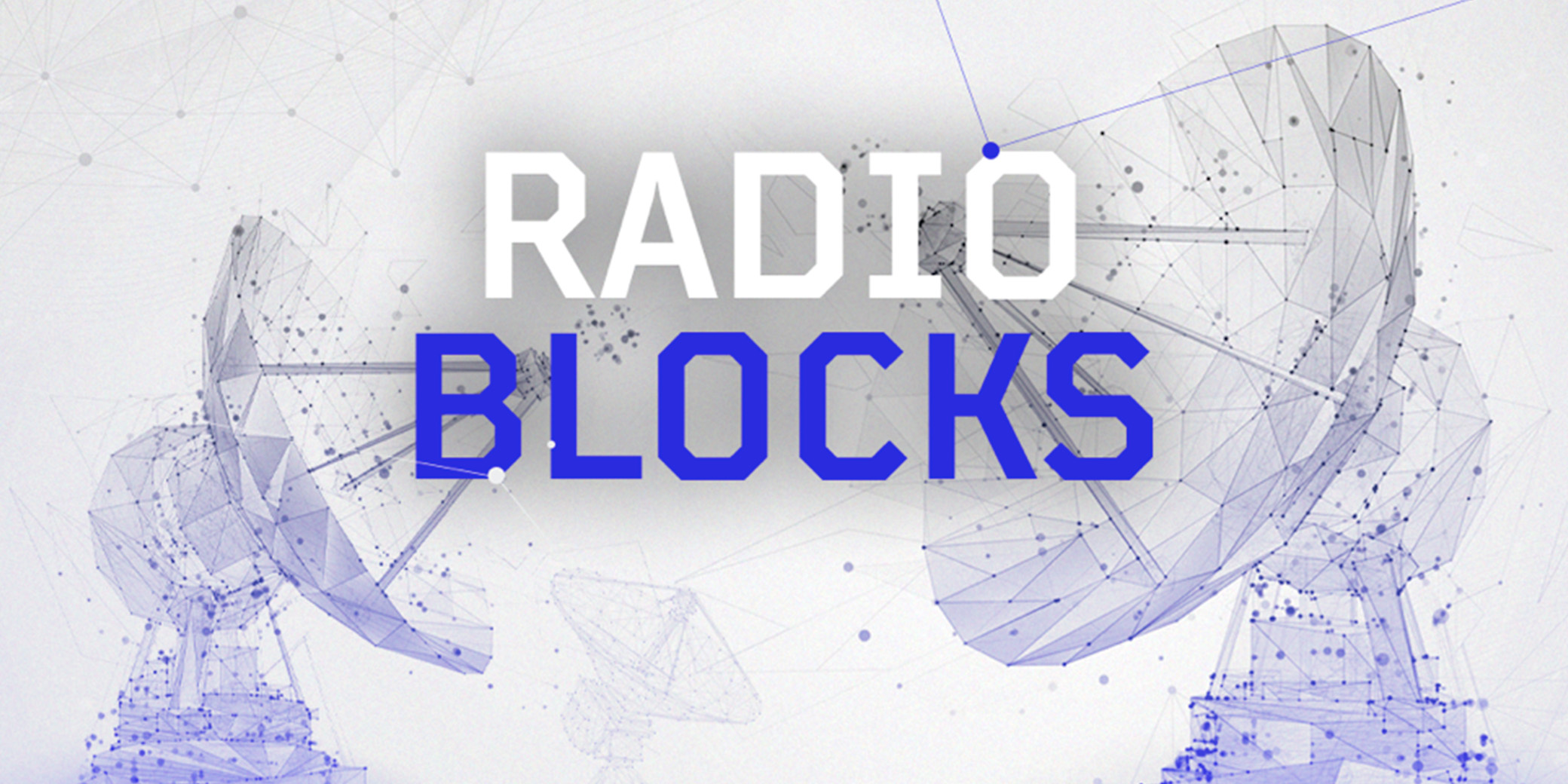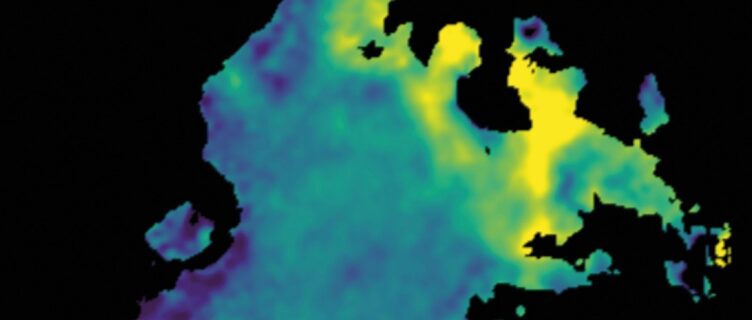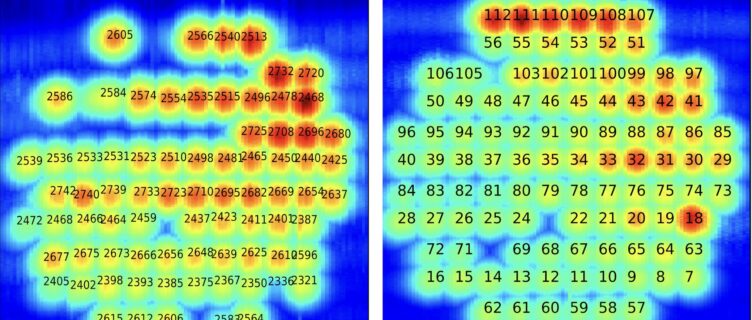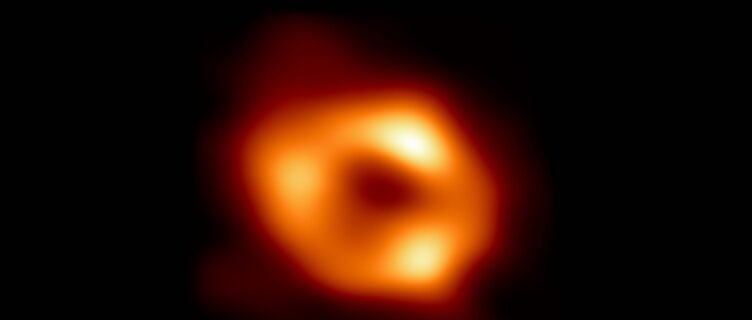The RADIOBLOCKS project, coordinated by JIVE ERIC and including major European research infrastructures for radio astronomy, together with partners from industry and academia, have been granted 10 M€ by the European Commission to develop “common building blocks” for technological solutions beyond state-of-the-art, that will enable a broad range of new science and enhance European scientific competitiveness. The project will start on 1 March 2023.
The RADIOBLOCKS project will take a holistic view of how radio telescopes arrays capture, process, synthesise and analyse cosmic signals and will develop components, technologies and software, applicable to a wide range of instruments, to enable the next major discoveries in radio astronomy.
RADIOBLOCKS aims to achieve a maximal boost for the major world-leading research infrastructures in radio astronomy by developing common needed blocks:
- for the development of new correlators, which can efficiently exploit powerful new commercially available accelerator hardware (GPUs). This development will directly benefit the large radio arrays from metre to sub-mm wavelengths;
- in cutting-edge frontend technologies, addressing the generation and real-time handling of wide band and multi-band data, in particular for the creation of novel detectors and components, both RF and IF, as well as the design of backends, with built-in RFI mitigation;
- for multipixel (PAF/FPA) receivers, ranging from cm to submm wavelengths, suitable for large single dish facilities, with special relevance for future collaborations with pan-European and global RIs (e.g., SKA-VLBI).
- for data (post)processing, testing prototype workflows functionality and demonstrating usage of end-to-end simulation tools.
“The project RADIOBLOCKS collects the experience and common interests of the radio astronomy community in Europe at large, including several other global parties and industry. For the first time, all will work together to develop the technologies that are necessary for the future evolution of their facilities. This is a paradigm shift, mostly facilitated by the European Commission’s Horizon Europe programme”, says Dr. Francisco Colomer, director of JIV-ERIC and coordinator of RADIOBLOCKS.
The 4-year RADIOBLOCKS project – funded by the Horizon Europe Framework Programme – involves 33 major European research infrastructures for radio astronomy, together with partners from industry and academia from 9 European countries, Japan, Republic of Korea, South Africa, and the United Kingdom. The engagement with industry to co-develop advanced technologies will increase the partners’ technological levels and strengthen their market positions.
The European research infrastructures (RI’s) involved in RADIOBLOCKS are the Joint Institute for VLBI ERIC (JIV-ERIC) and the European VLBI Network (EVN), the Multi Element Remotely Linked Interferometer Network (eMERLIN), the LOw Frequency ARray (LOFAR/ILT, in the process to become LOFAR ERIC), the Northern Extended Millimetre Array (NOEMA), the 100-metre Effelsberg Telescope, the Sardinia 64-m radio telescope, the Yebes 40-metre telescope, the IRAM 30-metre Telescope and also global facilities of European interest, such as the Square Kilometre Array Observatory (SKAO, an ESFRI landmark), the Atacama Large Millimetre Array (ALMA), the Global Millimetre VLBI Array (GMVA), and the Event Horizon Telescope project (EHT).
“The RADIOBLOCKS project brings together world-leading academic research and industry experts from across Europe and beyond to co-develop and then exploit new technologies to maximise the science capabilities of current and future radio facilities,” says Prof. Rob Beswick, Head of Science Operations and User Support for e-MERLIN, the UK’s National Radio Astronomy Facility; Deputy Director of the UK SKA Regional Centre and RADIOBLOCKS lead at The University of Manchester.
The project builds on the highly consolidated RadioNet consortium, which, since the year 2000, have been supported by the European Commission through their different Framework Programmes. RadioNet has successfully integrated a unique array of capabilities and contributed to the continued advances in radio astronomy, which are recognised as essential in answering key questions in astrophysics.
The RADIOBLOCKS project is coordinated by JIV-ERIC, showing its central role as a coordinating research infrastructure bringing together the major research organisation in the radio astronomy field and its expertise coordinating several EC-funded projects in recent years such as the H2020 JUMPING JIVE.
“RADIOBLOCKS is an ambitious project that will bring together 33 partners from industry and academia from all over the world.” says Dr. Giuseppe Cimò, head of Space and Innovative Applications at JIVE and Project Manager of the RADIOBLOCKS project. “It will be an exciting challenge to help develop the common blocks that European Research Infrastructures will use to create exciting scientific results to answer key questions in astronomy and astrophysics.”
Notes
The RADIOBLOCKS project will receive funding from the European Union’s Horizon Europe research and innovation programme under grant agreement No 101093934.
Additional information
The RADIOBLOCKS Consortium is comprised by the Joint Institute for Very Long Baseline Interferometry as a European Research Infrastructure Consortium (JIVE-ERIC, NL, Coordinator), Stichting Nederlandse Wetenschappelijk Onderzoek Instituten (ASTRON, NL), European Southern Observatory – ESO European Organisation for Astronomical Research in the Southern Hemisphere (ESO, DE), Agencia Estatal Consejo Superior de Investigaciones Cientificas (CSIC, ES), Fraunhofer Gesellschaft zur Forderung der Angewandten Forschung EV (FRAUNHOFER-IAF, DE), Stichting International LOFAR Telescope (ILT, NL), Institut de Radio Astronomie Millimetrique Societe Civile (IRAM, FR), Max-Planck-Gesellschaft zur Forderung der Wissenschaften EV (MPG, DE), Chalmers Tekniska Hogskola Ab (GARD, SE), the Chancellor, Masters and Scholars of the University of Oxford (UOXF, UK), Rijksuniversiteit Groningen (RUG, NL), United Kingdom Research and Innovation (UKRI, UK), Technische Universiteit Delft (TUD, NL), the University of Manchester (UNIMAN, UK), Universiteit Leiden (ULEI, NL), Ventspils Augstskola (VIRAC, LV), Centro Nacional de Informacion Geografica (CNIG, ES), Universite de Bordeaux (UBX, FR), Universitat zu Koln (UCO, DE), Syddansk Universitet (SDU DK), Sioux Technologies BV (SIOUX, NL), Istituto Nazionale di Astrofisica (INAF, IT), Observatoire de Paris (OBSPARIS, FR) , the Square Kilometre Array Observatory (SKAOB, UK), Haute Ecole Specialisee de Suisse Occidentale (HES-SO, CH), Lytid (LYTID, ES), Ecole Polytechnique Federale de Lausanne (EFPL, CH), Tti Norte, S.L. (TTI NORTE, ES), Stichting Radboud Universiteit (RADBOUD, NL), Korea Astronomy and Space Science Institute (KASI, KR), Alma Project, NAOJ (NAOJ, JP), University of Pretoria (UP, SA) and Beyond Gravity Schweiz AG (BGC, CH).
The EVN and JIV-ERIC have recently compiled a detailed scientific vision for VLBI, based on input from the scientific community (VLBI 2020-2030: a scientific roadmap for the next decade — The future of the European VLBI Network) in the framework of the H2020 JUMPING JIVE project. The scientific priorities presented in that document drive the EVN technological developments.
The European VLBI Network (EVN) is an interferometric array of radio telescopes spread throughout Europe, Asia, South Africa and the Americas that conducts unique, high-resolution, radio astronomical observations of cosmic radio sources. Established in 1980, the EVN has grown into the most sensitive VLBI array in the world, including over 20 individual telescopes, among them some of the world’s largest and most sensitive radio telescopes. The EVN is composed of 13 Full Member Institutes and 5 Associated Member Institutes.
The Joint Institute for VLBI ERIC (JIVE) has as its primary mission to operate and develop the EVN data processor, a powerful supercomputer that combines the signals from radio telescopes located across the planet. Founded in 1993, JIVE is since 2015 a European Research Infrastructure Consortium (ERIC) with seven member countries: France, Italy, Latvia, the Netherlands, United Kingdom, Spain and Sweden; additional support is received from partner institutes in China, Germany and South Africa. JIVE is hosted at the offices of the Netherlands Institute for Radio Astronomy (ASTRON) in the Netherlands.
Contacts
Carsten Kramer, RadioBlocks workpackage 2 leader
Christophe Risacher, IRAM technology contact
Giuseppe Cimò, RadioBlocks project manager
Jorge Rivero González, JIVE science communications officer
Our latest updates
Explore all the latest news from our research and technology groups and never miss out on important upcoming events.















